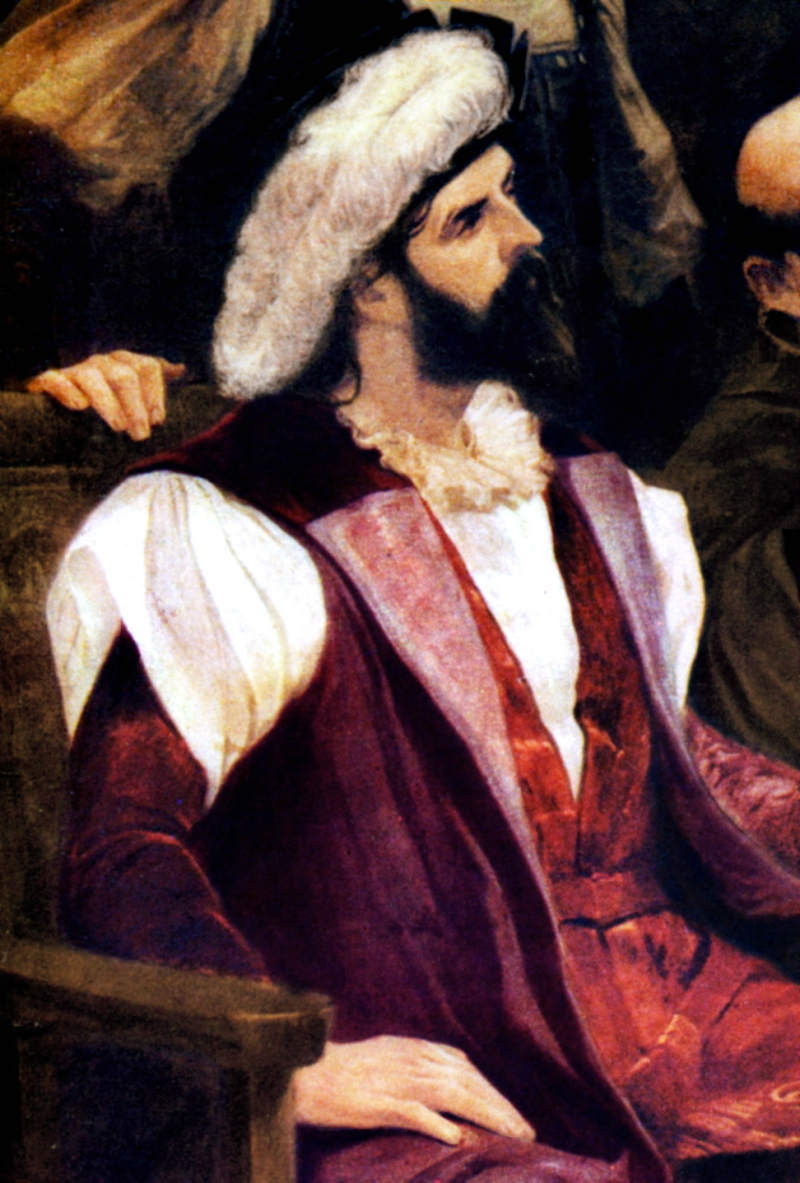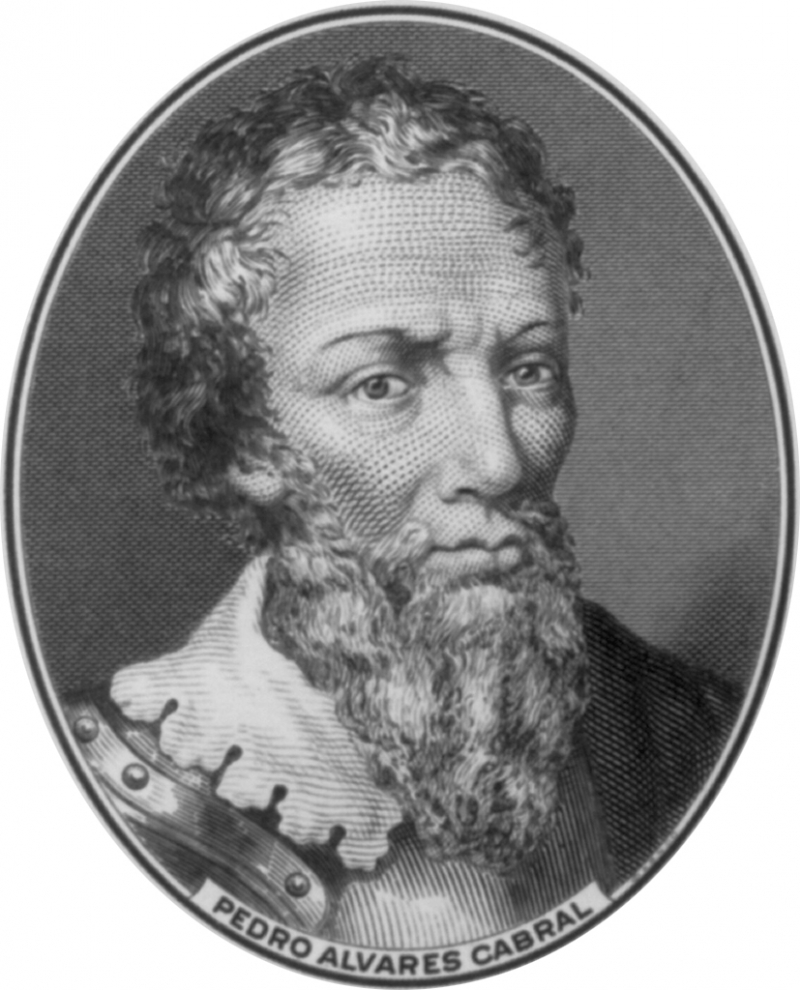Pedro Álvares Cabral
One of the most important historical figures in Portugal is Pedro Álvares Cabral. He (born Pedro Álvares de Gouveia; c. 1467 or 1468 - c. 1520) was a Portuguese nobleman, military commander, navigator, and explorer who is credited with discovering Brazil for the Europeans. He was the first person in history to visit all four continents, connecting them all in his historic expedition of 1500, during which he also performed the first substantial exploration of South America's northeast coast and claimed it for Portugal. While details about Cabral's childhood are unknown, it is known that he was born into a minor noble family and received a solid education. In 1500, he was chosen to lead an expedition to India, following Vasco da Gama's newly established path through Africa. The mission was to return with precious spices and to develop trading contacts in India, so avoiding the monopoly on the spice trade held by Arab, Turkish, and Italian traders. Although Vasco da Gama's previous trip to India had recorded evidence of land west of the southern Atlantic Ocean (in 1497), Cabral made the first known mission to touch four continents: Europe, Africa, America, and Asia.
His fleet of 13 ships traveled far into the western Atlantic Ocean, possibly on purpose, and made landfall (April 1500) on what he mistook for a big island. Cabral claimed the new area for the Portuguese Crown because it was within the Portuguese domain according to the 1494 Treaty of Tordesillas. He examined the shoreline, determining that the vast land mass was most likely a continent, and sent a ship to alert King Manuel I of the new region. The continent was South America, and the territory he claimed for Portugal became known as Brazil. The fleet replenished its supplies before continuing its trek to India.
For more than 300 years, his achievements were mostly forgotten. Cabral's reputation was rehabilitated by Emperor Pedro II of Brazil decades after Brazil's independence from Portugal in the nineteenth century. Historians have long debated whether Cabral discovered Brazil and whether the discovery was accidental or planned. The first question has been answered by the observation that the few, brief interactions with previous explorers were barely noted at the time and added little to the future development and history of the country that would become Brazil, the lone Portuguese-speaking nation in the Americas. On the second question, there is no clear consensus, and the purposeful discovery hypothesis lacks substantial evidence. Nonetheless, despite being eclipsed by contemporary explorers, historians regard Cabral as a pivotal figure in the Age of Discovery.











